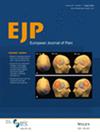Sudden gains in depression and anxiety during an online pain management programme for chronic pain
Abstract
Background
Chronic pain is associated with depression and anxiety symptoms. Pain management programms, delivered face-to-face or via the internet, can effectively help adults manage the impacts of chronic pain. Sudden gains are defined as substantial, rapid, and lasting symptom reductions that occur between consecutive treatment sessions and have been associated with better treatment outcomes in non-pain samples. This study examined whether adults with chronic pain report sudden gains in depression or anxiety symptoms during an 8-week online pain management programme, and whether sudden gains were associated with better treatment outcomes for depression or anxiety. Dominant theories of sudden gains argue that therapists are required for sudden gains to be maintained and improve treatment outcomes.
Methods
Using data from a published randomized controlled trial (n = 338), sudden gains and treatment outcomes were compared across three levels of therapist guidance provided alongside the programme: weekly, optional, and self-guided.
Results
Similar rates of sudden gains were observed in depression (22%) and anxiety (24%) across the treatment period, and most sudden gains occurred between Weeks 1 and 2 of treatment. Therapist guidance was not associated with sudden gains; higher baseline symptom severity emerged as the only consistent predictor of sudden gain status. No significant differences in treatment outcomes for depression or anxiety symptoms between sudden gainers and non-gainers were observed across therapist guidance conditions.
Conclusions
These results do not support an association between sudden gains in depression or anxiety symptoms and better post-treatment outcomes, at least for adults with chronic pain.
Significance Statement
Sudden gains in depression and anxiety symptoms were not associated with improved treatment outcomes for adults with chronic pain who participated in an online pain management programme, regardless of the level of therapist guidance provided. These findings suggest possible differences in symptom change in chronic pain samples compared to general population samples.


 求助内容:
求助内容: 应助结果提醒方式:
应助结果提醒方式:


